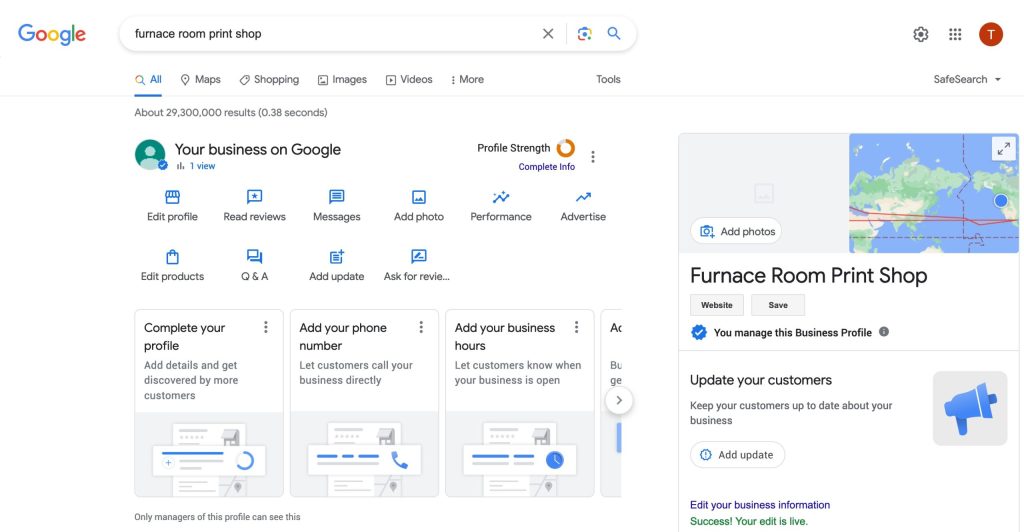Introduction
Today’s digital workplace demands more than just having a product or service—you need visibility. For startups, SMBs, and home-based entrepreneurs, local SEO is a foundational investment in small business growth. When used strategically, it becomes a builder for long-term success—helping businesses stand out in local search results and improve conversion rates.
Understanding Local SEO
What is Local SEO?
Local SEO focuses on improving visibility for location-based searches. Whether you’re building an application, website, or offering services, optimizing for your geographic area helps you reach real customers who are ready to engage.
Why Local SEO Matters for Home-Based Small Businesses
Startups and home-based SMBs benefit most from SEO tailored to their immediate community. Local visibility supports sustainable entrepreneurship and increases ROI for those working with limited budgets or launching new platforms like a startup app development course.
Setting Up Your Google My Business Profile
The Importance of Google My Business
A solid Google My Business profile is essential for local growth. Whether you’re managing a tech service, software development program, or business app builder, this listing acts as your digital storefront.
How to Optimize Your Google My Business Listing
Add keywords related to your startup app development or custom software development.
Upload branded images, including logos and product screenshots.
Respond to reviews to boost your profile’s local ranking.

On-Page SEO for Local Search
Incorporate Location-Specific Keywords
If you offer IT support, entrepreneur app development, or SaaS development, pair those with your city or neighborhood in titles, H1s, and URLs. For example:
“Affordable app development course in El Poblado, Medellín”
Optimizing Meta Tags and Descriptions
Meta tags and descriptions play a significant role in local SEO. Ensure that your title tags and meta descriptions include local keywords and accurately reflect the content of each page. This not only helps search engines understand your content but also entices users to click on your link in the search results.

Creating Location-Specific Content
Producing high-quality, location-specific content is another effective strategy for local SEO. Write blog posts, articles, and service pages that focus on local events, news, or issues relevant to your industry. This not only attracts local visitors but also establishes your business as a community-focused entity. If you are resident in Atlanta Gerogia, you can network with like-minded individuals here.
Building Local Citations and Backlinks
The Role of Citations in Local SEO
Citations are online mentions of your business’s NAP. They help search engines verify your business’s existence and relevance, which can boost your local search rankings. Ensure your business is listed on reputable local directories, such as Yelp, Yellow Pages, and local chamber of commerce websites.
How to Build High-Quality Local Backlinks
Backlinks from authoritative local websites signal to search engines that your business is trustworthy and relevant. Build high-quality local backlinks by engaging with local bloggers, sponsoring community events, and collaborating with other local businesses. Guest posting on local industry websites and earning mentions in local news articles can also enhance your backlink profile.
Utilizing Online Reviews and Ratings
The Power of Customer Reviews
Customer reviews significantly impact local SEO and consumer trust. Positive reviews can boost your search rankings and attract more customers, while negative reviews provide opportunities for improvement and demonstrate your commitment to customer satisfaction when addressed properly.
Strategies to Encourage Positive Reviews
Encourage satisfied customers to leave reviews by asking them directly, providing excellent service, and making it easy for them to do so. Include links to your review profiles in follow-up emails, on your website, and in your social media posts. Responding to reviews, whether positive or negative, shows that you value customer feedback and are dedicated to improving your business.
Leveraging Social Media for Local SEO
Encourage customers to share feedback about your application or product. Consider embedding a feedback form directly into your website or extension.
Pro Tip: Showcase top testimonials in your platform’s landing pages to strengthen trust and reinforce your tech credibility.
Social Media Platforms to Focus On
Use social channels to promote your digital workplace tools, especially if you’re targeting entrepreneurs. Feature short reels, posts, or stories showing local clients using your platform or startup development course.
How to Create Engaging Local Content
Creating engaging local content involves sharing posts about local events, customer stories, and community involvement. Use local hashtags and geotags to increase your reach. Engaging with your audience through comments, messages, and shares fosters a sense of community and strengthens your online presence.
Mobile Optimization for Local Search
Why Mobile Optimization is Crucial
With the majority of local searches conducted on mobile devices, mobile optimization is essential. A mobile-friendly website ensures that visitors have a positive experience, leading to higher engagement and conversion rates.
Best Practices for Mobile-Friendly Websites
To optimize your website for mobile, ensure it loads quickly, has a responsive design, and features easy-to-navigate menus. Avoid intrusive pop-ups, use large, readable fonts, and ensure that buttons and links are easily tappable. Regularly test your site on various mobile devices to ensure it performs well. [Internal Link Opportunity: Link to a detailed guide on your website about mobile optimization]
Track and Improve Your SEO Performance
Key Metrics to Watch
Click-through rates (CTR) on local landing pages
Keyword rankings for city + service combinations
Reviews and engagement on your Google Business profile
Traffic to location-optimized blogs or SaaS development pages
Tools for Monitoring Local SEO Success
Several tools can help you monitor and analyze your local SEO performance. Moz Local, BrightLocal, and SEMrush offer comprehensive solutions for tracking citations, backlinks, and keyword rankings. These tools provide valuable data that can inform your SEO strategy and highlight areas for improvement. [Internal Link Opportunity: Link to a list of recommended SEO tools on your website]
Conclusion
Local SEO is a powerful strategy for startups and home-based SMBs aiming to build apps, offer services, or scale in a competitive digital space. From platform optimization to custom content and development strategy, Bizinc helps you implement the right technologies to invest in small business growth.





